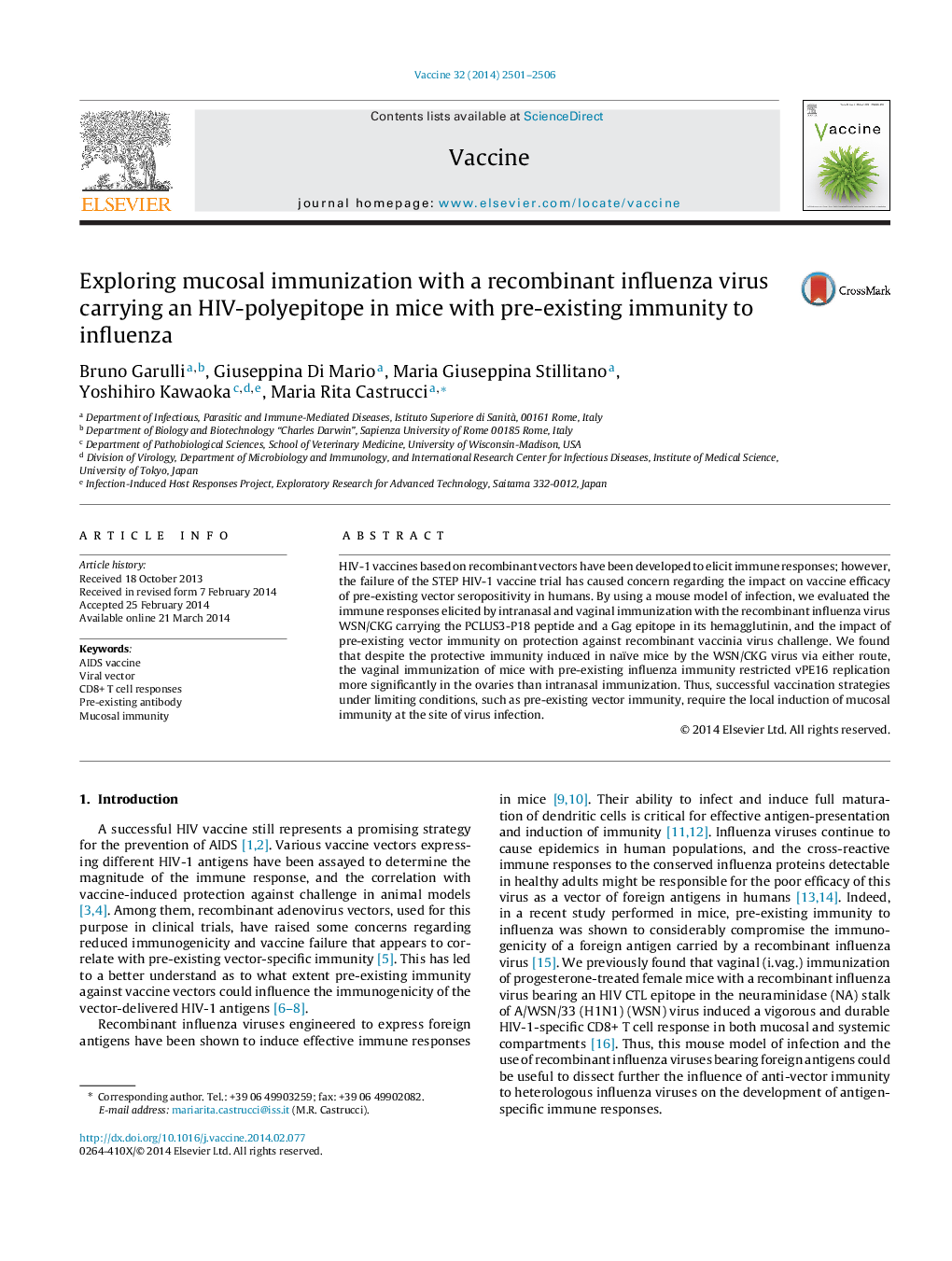| Article ID | Journal | Published Year | Pages | File Type |
|---|---|---|---|---|
| 10965173 | Vaccine | 2014 | 6 Pages |
Abstract
HIV-1 vaccines based on recombinant vectors have been developed to elicit immune responses; however, the failure of the STEP HIV-1 vaccine trial has caused concern regarding the impact on vaccine efficacy of pre-existing vector seropositivity in humans. By using a mouse model of infection, we evaluated the immune responses elicited by intranasal and vaginal immunization with the recombinant influenza virus WSN/CKG carrying the PCLUS3-P18 peptide and a Gag epitope in its hemagglutinin, and the impact of pre-existing vector immunity on protection against recombinant vaccinia virus challenge. We found that despite the protective immunity induced in naïve mice by the WSN/CKG virus via either route, the vaginal immunization of mice with pre-existing influenza immunity restricted vPE16 replication more significantly in the ovaries than intranasal immunization. Thus, successful vaccination strategies under limiting conditions, such as pre-existing vector immunity, require the local induction of mucosal immunity at the site of virus infection.
Related Topics
Life Sciences
Immunology and Microbiology
Immunology
Authors
Bruno Garulli, Giuseppina Di Mario, Maria Giuseppina Stillitano, Yoshihiro Kawaoka, Maria Rita Castrucci,
